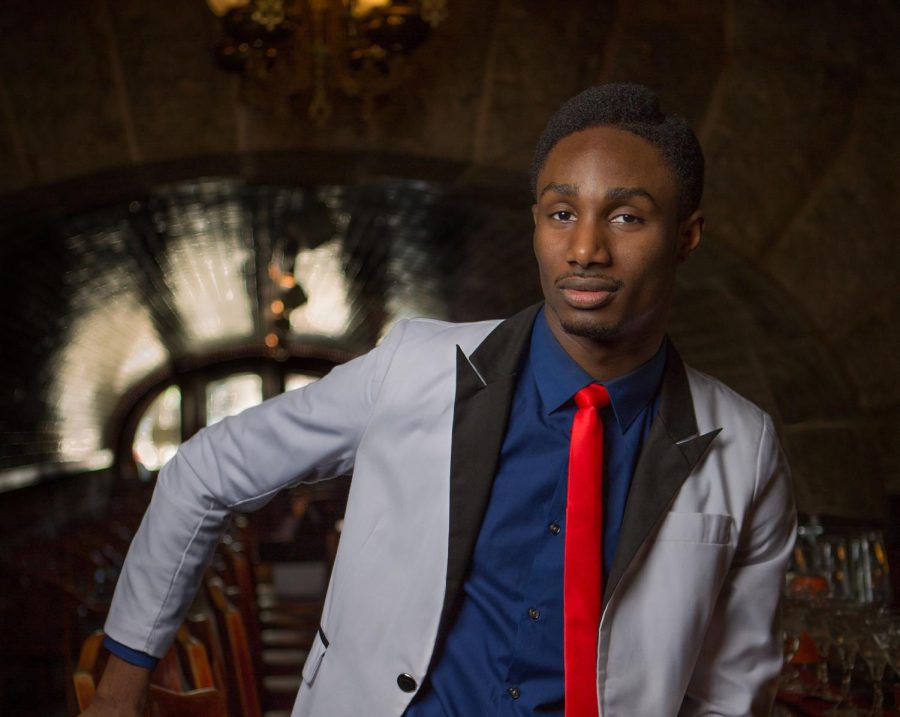A Springfield native and first-generation graduate, lecturer Myles Sanders teaches the only Deaf studies course offered at the University of Massachusetts.
Sanders said that he learned about Deaf culture and American Sign Language through his older sister, who is Deaf. When he was around seven, he was able to learn sign language like it was “nothing,” to communicate with his sister. Sanders said that out of everyone in his family, he was able to catch on to ASL the easiest.
Before obtaining an associate degree in Deaf Studies from Holyoke Community College, he says that he was unaware of how much he knew about Deaf culture.
“Growing up was like, I’m not thinking anything of what I’m learning or what I’m doing and like this is home life? This is normal,” Sanders said. “So, it wasn’t until later on, I was like oh, I know something that most people, especially hearing people, don’t know.”
Prior to the pandemic, he started working at UMass in 2019 as an academic advisor in the University Without Walls Department of Interdisciplinary Studies. After speaking with a supervisor about developing a Deaf studies course, he applied but was “nervous” about whether he would be accepted.
“I thought, I’m probably not going to be qualified, and they’re gonna find somebody else that is able to teach the course,” Sanders said.
After receiving an email that he was accepted to teach the course, the class was scheduled to start in fall 2020. Sanders said that he held off from teaching for that semester and pulled away for a year until fall 2021 came around.
Sanders typically starts his classes by asking students what they already know about Deaf culture, introducing them to misconceptions in the Deaf community and delving into some of the historical impacts within the community.
Sanders noted a few misconceptions, one of them being that ASL is regarded as a universal language. He also explained audism, where people that are hearing assume that others around them can hear.
“It’s best understood as an implicit bias that hearing people have, and it is quite common,” he said. “The thing is with a lot of deaf people, you won’t know that they’re deaf until they disclose it to you.”
Sanders added that he’s seen his sister experience this, and the impact it has when people try to speak with her.
“People have just walked up to her and started talking, so she’ll write things down or try to type things out. It’s unfortunate, but that is what happens, because automatically people just assume like, because of their own experiences, that anyone they encounter will behave similarly,” he said.
Another misconception some may have about the Deaf community, Sanders noted, is that people who are deaf aren’t able to listen to music, whereas in reality, it’s the “opposite.”
“They are able to feel the vibrations and everything. When my sister and I listened to music together growing up, she could literally feel it,” he said. “She can feel the rhythm and follow so she can dance as well.”
Regarding the historical aspects of Deaf culture, Sanders brought up the establishment of Deaf clubs in the U.S., which were formed so that people could socialize with one another.
“They would find their community, play games, learn about different things. They would have food and share everything, like what you would do if you went to a bingo night or if you went to a country club. They were there to enjoy each other’s company,” he said.
When choosing the textbook for his class, Sanders looked for a book that would have a variety of research.
“I wanted something that was more broad, where people can learn a little bit about the history, the culture, the language, the education, the different perspectives, all of it,” he said.
At the end of the course, Sanders’ provides a survey to analyze what students have retained.
“I like to see what has shifted from the beginning to the end. It’s really interesting to see for myself, since it was so normalized growing up with my sister. I didn’t think of things outside of our own little household,” he said.
During the 1800s, it was believed that teaching sign language was harmful for children’s developmental growth, explained Sanders. On the other hand, studies have shown that teaching children sign language, regardless of whether they are hearing or not, can aid with their developmental growth. Sanders can attest to those studies, as his nephew knows both verbal and sign language.
“It’s so impressive to see because he’s now three, and it’s like, I can see it in real time. There is no stunted growth in his verbal speech, he can differentiate which is which,” he said.
Outside of higher education, Sanders recognizes how each person’s educational background can impact how they learn and what existing beliefs they hold when it comes to Deaf culture.
“Everything is shifting, everything is changing, so it’s about meeting people where they are, and teaching them what they need to know. I want to talk to everyone in a way where they can understand it,” he said.
As to what the future of the Deaf community entails, Sanders anticipates that researchers will be able to develop additional courses, where there is more in-depth information about the history and culture of the Deaf community.
Olivia Capriotti can be reached at [email protected] and followed on Twitter @CapriottiOlivia.




















